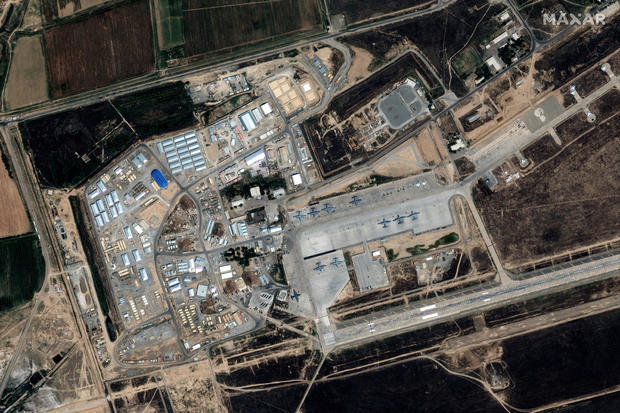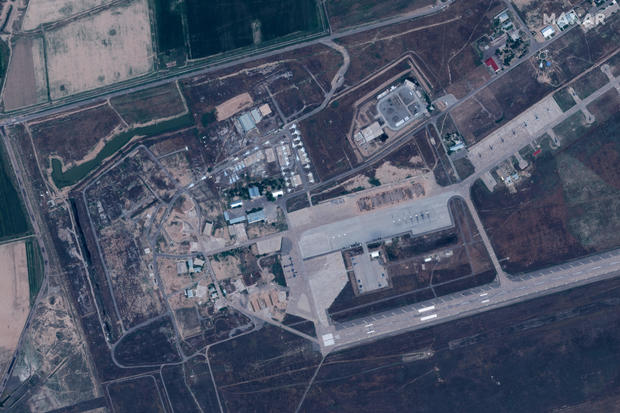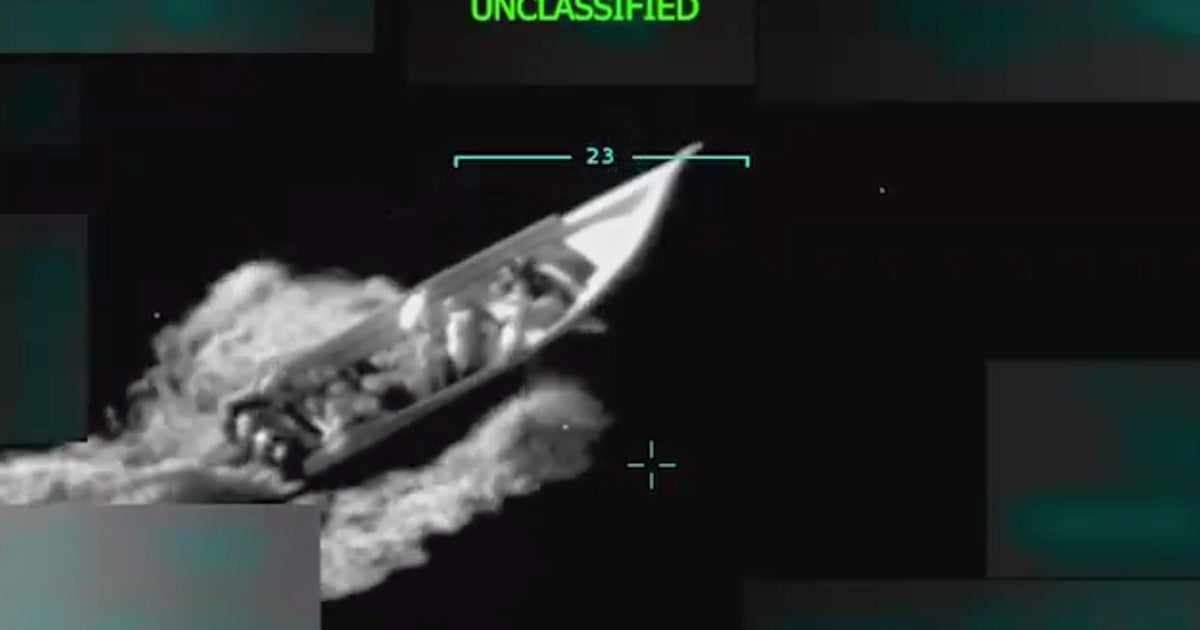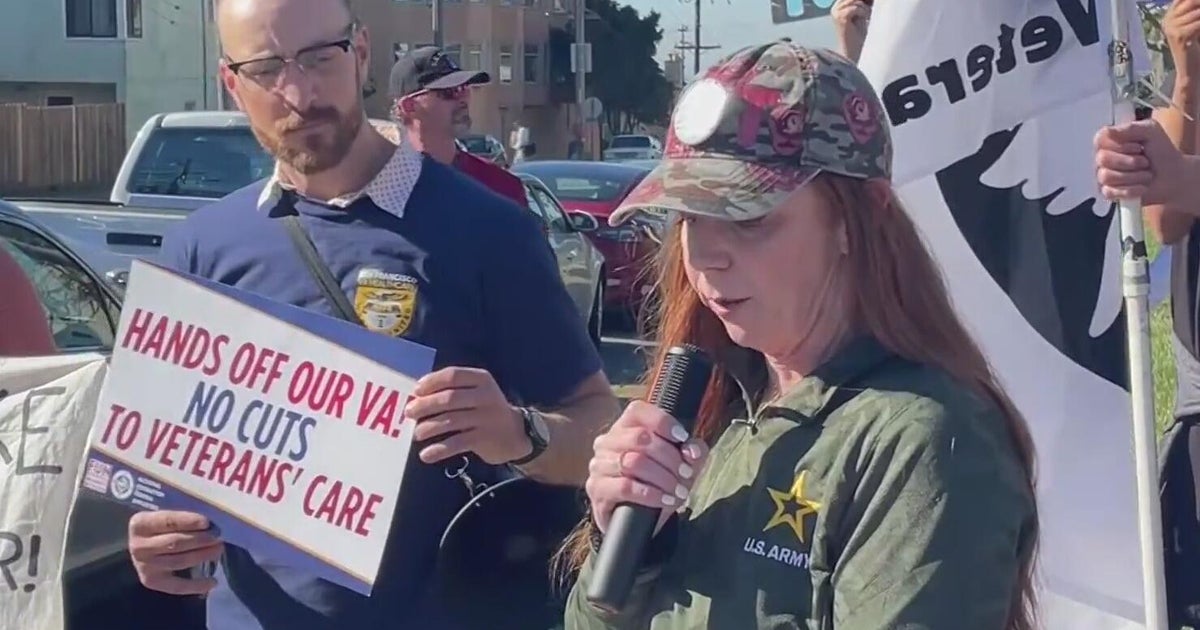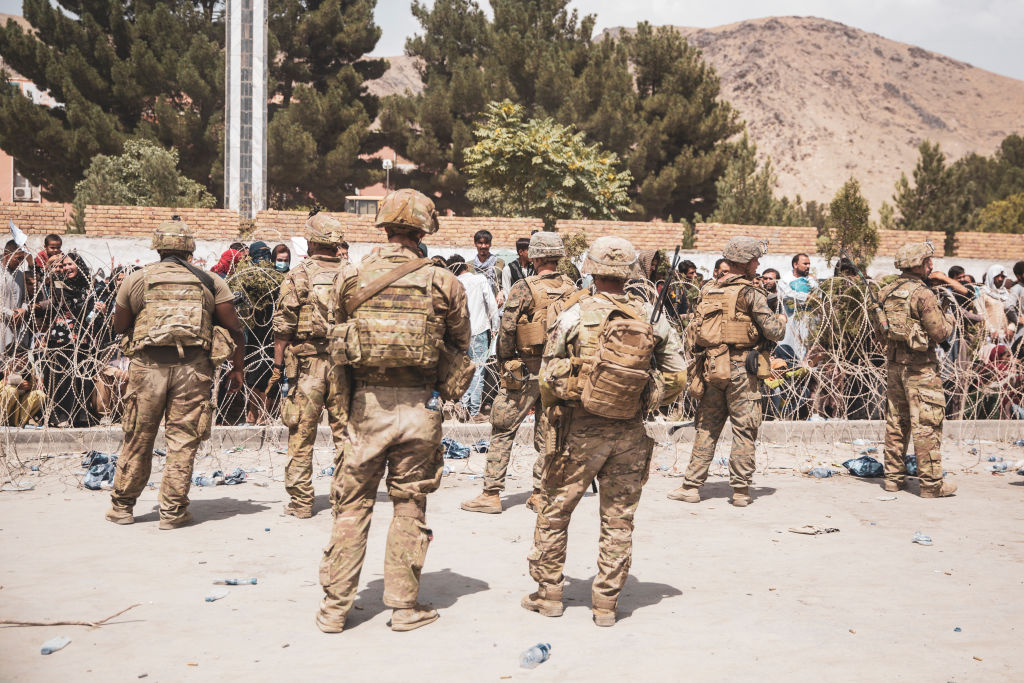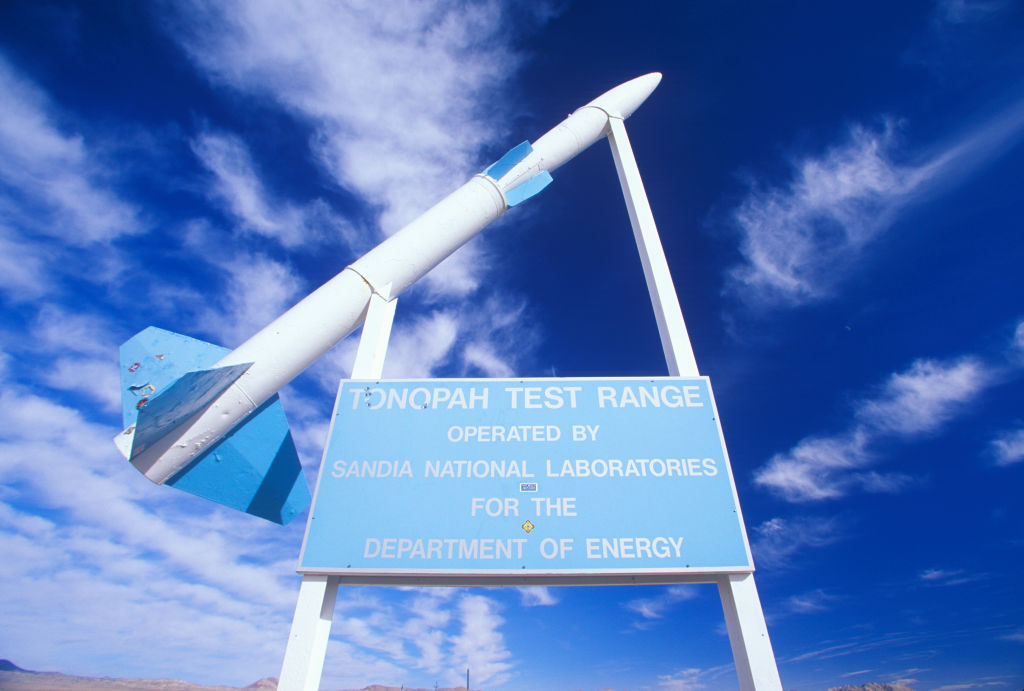VA, Defense Department under new pressure to help ailing veterans who served at toxic Uzbek base
Hundreds of veterans have come forward after a CBS News investigation revealed new evidence of toxic materials at a remote base the U.S. military used after 9/11.
More than 15,000 U.S troops passed through Karshi-Khanabad, or K2, a former Soviet air base in Uzbekistan that U.S. forces used to hunt Al Qaeda in nearby Afghanistan.
The investigation was cited at a recent House hearing that put new pressure on the Veterans Affairs and Defense Departments to address health concerns from sick service members.
Although nearly 2,500 current and former service members have now reported rare cancers or other illnesses they believe are linked to their deployments, neither the Defense Department nor the VA acknowledges a link between K2 and illness.
CBS News' Catherine Herridge spoke to K2 veteran Mark Jackson, whose illnesses have baffled doctors for years.
"I went from being able to run a marathon to not being able to walk up a flight of stairs," he said. "Turns out my thyroid simply did not function. I was 28 years old."
Now, the 43-year-old takes a cocktail of drugs to manage his symptoms and sees his doctors on a regular basis. He calls himself a "ticking time bomb."
"I see an oncologist once every six months, just to make sure that nothing else has cropped up," he said.
Jackson kept detailed journals of his 10-month deployment at K2 in 2003-2004. It offers a raw and unsettling account of his time overseas.
In one entry he wrote, "The ground and the dust that covers it is contaminated. Everywhere is decay and environmental degradation."
In another, he recalls one of the many days he felt ill while stationed there, "My head hurts from breathing. Some here joke they're glad they're done having children. I suspect they're only half serious. But there is probably truth in what they say."
Jackson sees his journals as a roadmap for the sickness that would follow. He said at least five doctors over the years have told him they believe his illnesses are related to toxic exposure.
Still, Jackson considers himself one of the fortunate ones.
"I had no idea that there were thousands and thousands of K2 veterans that were sick of which I was one and of which I am lucky," he said. "I don't have cancer. I'm not dead. yet."
A federal investigator by training, Jackson has gone to Capitol Hill to support a K2 veteran's advocacy group, the Stronghold Freedom Foundation. Through its Facebook page, members self-report rare cancers and other illnesses.
More than a dozen K2 veterans told CBS News about toxic conditions, from soil saturated with jet fuel, a running track marked with warning signs to a site that earned the nickname "Skittles Pond" for how frequently it changed shade.
In October, a Defense Department employee involved in testing for toxic materials at the base went on the record with CBS News. Mike Lechlitner was among the first to arrive at K2 in 2001 but said just days into his mission, local workers hired to build a dirt barrier around the base started getting sick. Soon after, he was asked to help identify sites to test across the base and gather intelligence on its history.
"We learned that the Soviets had had a chemical weapons decontamination unit adjacent to our camp," Lechlitner said.
Lechlitner also shared he saw radiation readings "7 to 9 times higher than normal background radiation" while he was working with a team taking the readings and said he was handed a fragment an officer told him was a "piece of yellowcake."
During a recent Congressional hearing, the Defense Department disputed Lechlitner's account that yellowcake, a refined form of uranium ore, was present at K2. But an eyewitness who spoke to CBS News affirmed Lechlitner's story of the yellowcake and Lechlitner stands by his account. Since that hearing, lawmakers have submitted follow-up questions to the Defense Department regarding the presence of yellowcake.
Members on both sides of the aisle also urged the VA to grant presumptive status and service-connected benefits to K2 veterans, which would acknowledge their illnesses are a result of their time in the military and offer access to more benefits and preventive care, and admonished the agency for their lack of action.
"The VA's continued denial has left hundreds if not thousands of K2 veterans ineligible for certain preventative health programs and unable to receive a disability benefit," said Rep. Stephen Lynch, a Massachusetts Democrat.
While a long-term study is ongoing, the VA maintains there is not enough scientific evidence to make the connection.
"It would be a disservice to the veterans to simply say, and this is all veterans, to simply say we don't know how you got it," VA witness Dr. Patricia Hastings said when pressed on why they haven't granted a presumptive-service connection. "We're just going to cover it. My office looks at the science. I want to find out what the exposures were."
Proof that the base is toxic, Jackson said, is that the side where American troops were stationed remains unused and unoccupied.
While U.S. forces left K2 in 2005, satellite images from earlier this year appear to show the area where troops worked and slept is abandoned.
"The most telling part of that, to me, is that in 15 years, the Uzbeks haven't moved a stone," said Jackson. "They know it's poison. Why else wouldn't they use half of their own base?"
While six pieces of legislation are pending, Jackson says the Acting Defense Secretary and VA Secretary can take action on their own.
"Help. You can help us," Jackson said. "This is a cry for recognition, recognize our sacrifice, we are still sacrificing."
A senior Pentagon official told CBS News that Acting Defense Secretary Miller is considering a number of options to bring immediate relief, both medical and financial, to K2 veterans with the goal of addressing their issues in the coming weeks.
